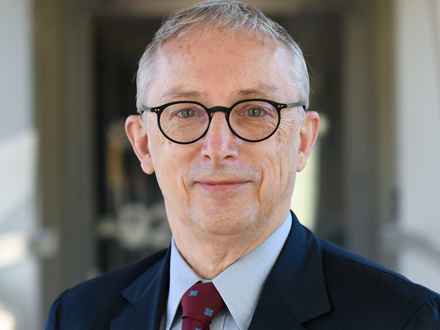Acute Myeloid Leukemia: What to Know, What to Do
Presented by Dr. Scott Rowley
Wednesday, October 30, 2024
12:00 pm Eastern, 11:00 am Central
10:00 am Mountain, 9:00 am Pacific
If you have already registered, Click here to join the Webinar
Join us for an in-depth discussion about acute myeloid leukemia (AML). Learn about:
- the different types of AML
- treatment options for AML patients including induction therapy, consolidation therapy, and treatment after relapse
- when a bone marrow/stem cell transplant is the appropriate treatment
- recent advances in diagnosing, staging, and treating AML patients
Bring your questions!
The webinar is free, but advance registration is required. All you will need to participate is a computer, smartphone, or another electronic device.
About the Speaker: Scott Rowley, MD
 Dr. Rowley is a professor of medicine at Georgetown University School of Medicine in Washington, DC. Now retired, he was the director of the Stem Cell Transplant and Cellular Immunotherapy Program at MedStar Georgetown University Hospital and the Medical Director of the Cellular Therapies Manufacturing Facilities at Hackensack University Medical Center in New Jersey. His career of over 40 years dedicated to transplant medicine included being on the faculty of The Johns Hopkins Oncology Center in Baltimore and the Fred Hutchinson Cancer Research Center in Seattle. Dr. Rowley's research focused on developing bone marrow graft processing and cryopreservation techniques, as well as the clinical applications of transplantation in the treatment of cancer and other disorders.
Dr. Rowley is a professor of medicine at Georgetown University School of Medicine in Washington, DC. Now retired, he was the director of the Stem Cell Transplant and Cellular Immunotherapy Program at MedStar Georgetown University Hospital and the Medical Director of the Cellular Therapies Manufacturing Facilities at Hackensack University Medical Center in New Jersey. His career of over 40 years dedicated to transplant medicine included being on the faculty of The Johns Hopkins Oncology Center in Baltimore and the Fred Hutchinson Cancer Research Center in Seattle. Dr. Rowley's research focused on developing bone marrow graft processing and cryopreservation techniques, as well as the clinical applications of transplantation in the treatment of cancer and other disorders.
He served on the committee that wrote the standards for cell processing adopted by the Foundation for Accreditation of Cellular Therapy. He has also served on boards of the American Society for Transplantation and Cellular Therapy and the International Society for Chemotherapy and Graft Engineering.
Many thanks to Syndax whose support helped make this presentation possible.